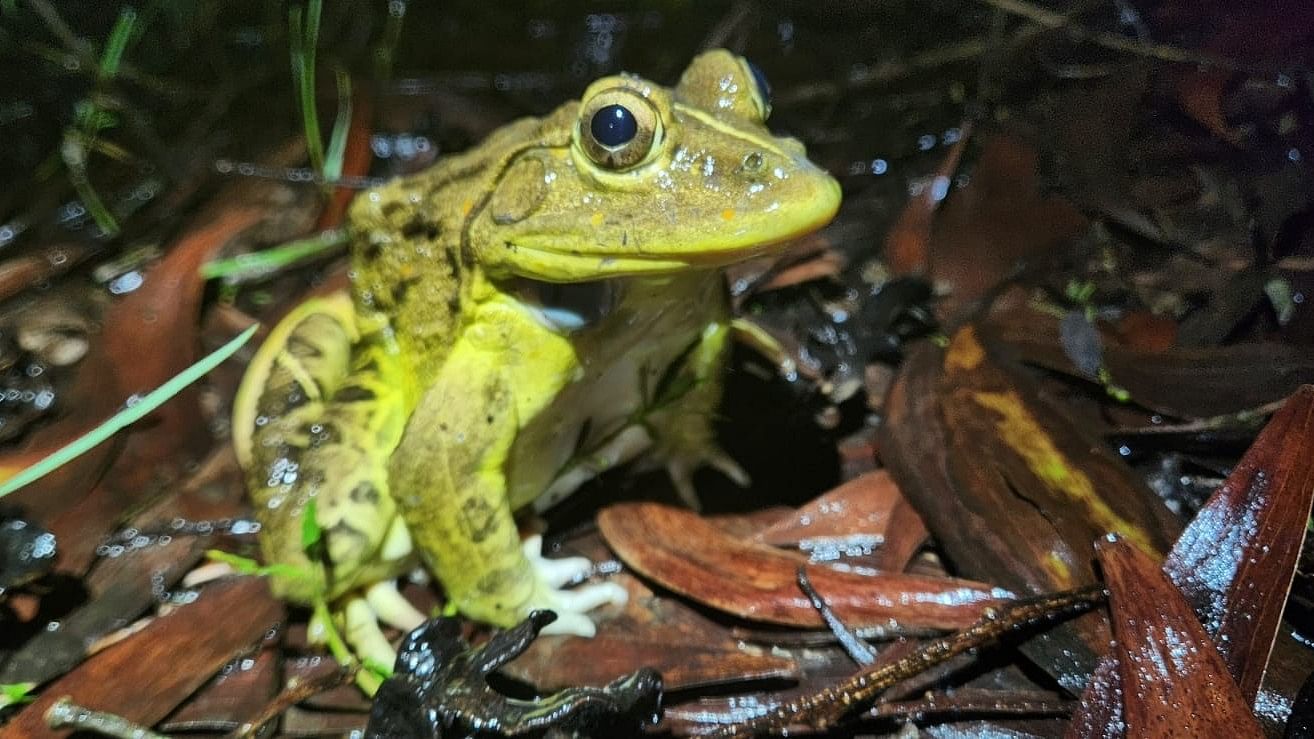
Hoplobatrachus tigerinus.
Credit: Special Arrangement
There is a new attraction on the outskirts of Dharwad — a frog park, perhaps the first of its kind in the state. The park has been built with the intention of helping frog enthusiasts conduct research on amphibians. It will also serve as a breeding spot and help to increase the population of some rare species. The park is situated at Nature First Eco-Village, an eco-education centre, in Halligeri.
Environmentalists were encouraged to set up the park after a recent survey conducted at the Karnatak University Dharwad and Nature First Eco-Village saw the participation of 41 citizen scientists, who identified 19 species of frogs that are rare to this region.
Fungoid frog
Credit: DH Photo
Bengaluru-based batrachologist KV Gururaj said, “Nowadays, citizen scientists are playing a crucial role at the community level. Dharwad citizens, too, have joined in this initiative. Such grassroots-level documentation helps research in the long run.”
The frog species documented by the team include Duttaphrynus melanostictus, Raorchestes bombayensis, Hoplobatrachus tigerinus, Minervarya caperata, Microhyla rubra, Microhyla ornata, the common toad, Ferguson’s toad and the common skittering frog.
Citizen scientists document frog species at Halligeri village on the outskirts of Dharwad.
Credit: DH Photo
Harshvardhan Sheelvanth, convener of the Nature Research Centre (NRC) which co-organised the survey, said that an artificial pond with vegetation would be created. “As frogs have two life cycles — that is, they lay eggs in the water and come to land for food — a mini ecosystem that suits the amphibians will be created,” he said.
To attract youngsters
PV Hiremath, NRC working president and founder of Nature First Eco-Village, said that the initiative is aimed at creating an eco-educational park to attract young researchers and children. Zoologists will also benefit from the batracharium (frog park). “We will also launch micro-grants and fellowships for citizen scientists who do field work and submit a report,” Hiremath said.